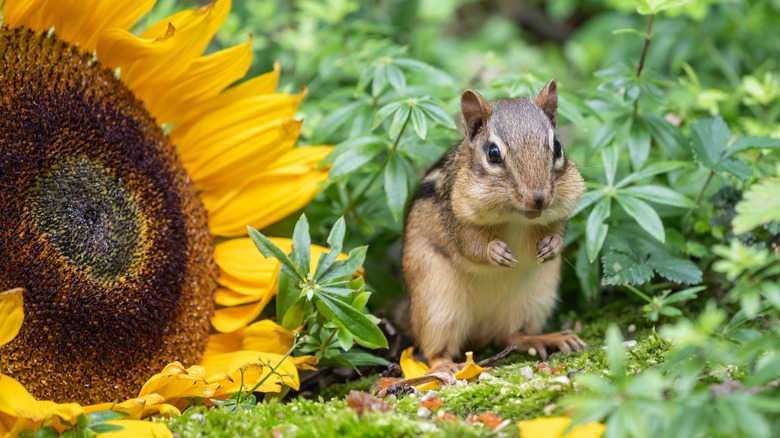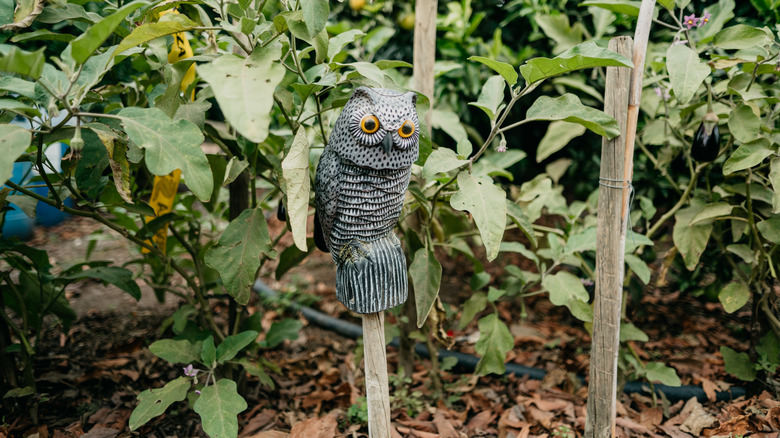Are Chipmunks In Your Garden A Bad Thing? Here's What We Know
Chipmunks are so adorable that it's hard to imagine them being anyone's villain. Those chunky cheeks! Those little stripes! But all the cuteness in the world doesn't mean gardeners welcome them. Quite the opposite: some gardeners experience so much damage from chipmunks that they're considered a pest.
Chipmunks are common animals throughout the U.S., living in woodlands, meadows, and gardens across the country. They serve as an important food source for foxes and birds, and as they munch on various plants and mushrooms, they help trees disperse seeds and spread fungi that support tree health. Unfortunately for your garden, it may contain some of a chipmunk's favorite delicacies, including berries, flowers, bulbs, veggies, fruits, roots, nuts, and seeds. Some of their go-to snacks might also be your most precious plants, like tomatoes and strawberries. They also like to burrow in the ground, and while their holes and tunnels are unlikely to cause damage, they may be unsightly.
Just seeing a chipmunk or two in your garden doesn't mean that you need to panic. Chipmunks are solitary animals and very small, so they might end up having minimal effect on your plants. Nonetheless, when they're a pain, they're a real pain.
What to do if you have a chipmunk problem
You might catch a direct glimpse of your chipmunk frenemies, but you might also notice the signs first: small holes and tunnels in the ground, uprooted bulbs, holes in your veggies and fruit, or mysterious caches of seeds and grains. You might also notice little clumps of seeds sprouting where you didn't plant any. If you're experiencing garden damage or just aren't a fan of chipmunks, you can take steps to discourage them from visiting your garden.
First, prevent them from feeding on your roots or bulbs by using wire mesh or a hardware cloth enclosure. Either get rid of your bird feeder or clean around it daily — chipmunks are a big fan of feasting on the feed that spills onto the ground. You can also try several ways to keep chipmunks out of your garden, like anti-squirrel or anti-deer sprays, but you'll need to spray consistently to see results.
Some gardeners turn to DIY alternatives like cinnamon or ammonia to repel chipmunks. Other natural methods include planting a predator statue (like an owl) as a clever deterrent to keep chipmunks away, or allow your dog or cat to roam your garden. Even some plants seem to repel chipmunks, including daffodils, crocuses, onions, garlic, and marigolds. To keep chipmunks out of your garden in the future, place your garden beds further away from forested areas that chipmunks frequent, build a gravel border, and keep your garden clear of wood or rock piles. Chipmunks dislike open space, so with these measures in place, they'll be less likely to brave your garden in the first place.

